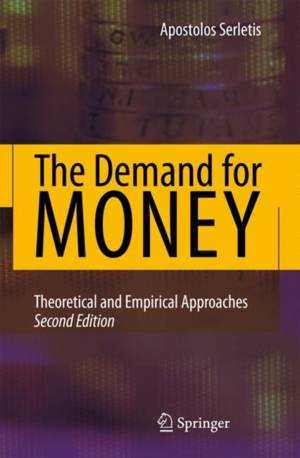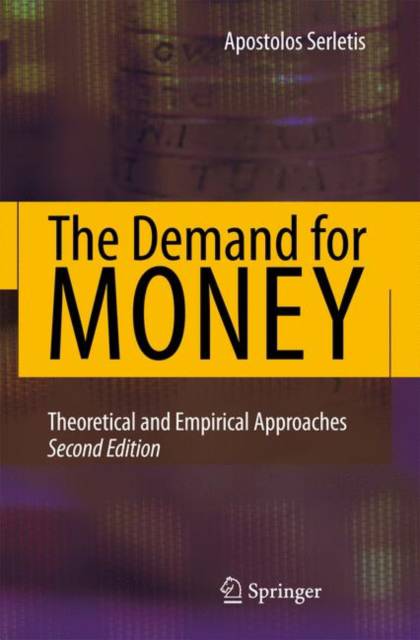
Je cadeautjes zeker op tijd in huis hebben voor de feestdagen? Kom langs in onze winkels en vind het perfecte geschenk!
- Afhalen na 1 uur in een winkel met voorraad
- Gratis thuislevering in België vanaf € 30
- Ruim aanbod met 7 miljoen producten
Je cadeautjes zeker op tijd in huis hebben voor de feestdagen? Kom langs in onze winkels en vind het perfecte geschenk!
- Afhalen na 1 uur in een winkel met voorraad
- Gratis thuislevering in België vanaf € 30
- Ruim aanbod met 7 miljoen producten
Zoeken
€ 195,95
+ 391 punten
Uitvoering
Omschrijving
Almost half a century has elapsed since the demand for money began to attract widespread attention from economists and econometricians, and it has been a topic of ongoing controversy and research ever since. Interest in the topic stemmed from three principal sources. Firstofall, therewasthematter oftheinternaldynamicsofmacr- conomics, to which Harry Johnson drew attention in his 1971 Ely Lecture on "The Keynesian Revolution and the Monetarist Counter- Revolution," American Economic Review 61 (May 1971). The main lesson about money that had been drawn from the so-called "Key- sian Revolution" was -- rightly or wrongly -- that it didn't matter all that much. The inherited wisdom that undergraduates absorbed in the 1950s was that macroeconomics was above all about the determination of income and employment, that the critical factors here were saving and investment decisions, and that monetary factors, to the extent that they mattered at all, only had an in?uence on these all important variables through a rather narrow range of market interest rates. C- ventional wisdom never goes unchallenged in economics, except where its creators manage to control access to graduate schools and the jo- nals, anditiswithnocynicalintentthatIcon?rmJohnson'ssuggestion that those of us who embarked on academic careers in the '60s found in this wisdom a ready-made target.
Specificaties
Betrokkenen
- Auteur(s):
- Uitgeverij:
Inhoud
- Aantal bladzijden:
- 382
- Taal:
- Engels
Eigenschappen
- Productcode (EAN):
- 9780387717265
- Verschijningsdatum:
- 27/06/2007
- Uitvoering:
- Hardcover
- Formaat:
- Genaaid
- Afmetingen:
- 156 mm x 234 mm
- Gewicht:
- 743 g

Alleen bij Standaard Boekhandel
+ 391 punten op je klantenkaart van Standaard Boekhandel
Beoordelingen
We publiceren alleen reviews die voldoen aan de voorwaarden voor reviews. Bekijk onze voorwaarden voor reviews.









